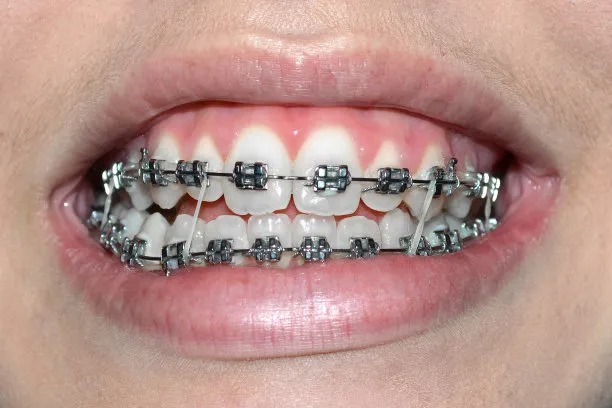Summary: Dental implant treatment has emerged as a revolutionary method for restoring oral function and aesthetics, offering a lifetime solution for individuals suffering from tooth loss. This article will delve into the myriad benefits of dental implants, the step-by-step process involved in their placement, the differences between implants and other tooth replacement options, and the importance of aftercare for maintaining long-term oral health. Understanding these key aspects can help individuals make informed decisions about their dental health, ensuring they can enjoy vibrant smiles for life.
1. Key Benefits of Dental Implants

Dental implants offer a range of benefits that extend beyond just restoring smiles. Firstly, they provide a stable and durable solution for tooth replacement, allowing patients to eat, speak, and smile comfortably without fear of movement. Unlike dentures, which may slip, implants are anchored securely into the jawbone, mimicking the function of natural teeth.
Secondly, they contribute significantly to oral health. When a tooth is lost, the underlying jawbone can begin to deteriorate due to lack of stimulation. Dental implants stimulate the bone, preventing further loss and maintaining facial structure. This essential benefit goes a long way in preserving a youthful appearance.
Lastly, the psychological and emotional advantages cannot be overlooked. Many individuals feel self-conscious or embarrassed about missing teeth. Implants can restore confidence, enabling individuals to engage in social situations without hesitation, thereby improving overall quality of life.
2. The Dental Implant Process Explained
The process of receiving dental implants is meticulously planned to ensure successful outcomes. The first step involves a thorough examination by a qualified dental professional, which may include imaging tests to assess bone density and structure. This preparation is crucial as it determines the viability of implant placement.
Once approved, the surgical procedure follows, which typically involves inserting the titanium post into the jawbone. Over the following months, the bone integrates with the implant in a process known as osseointegration. This is vital for ensuring the stability of the implant, as it essentially becomes a part of the body.
After the healing period, a custom abutment and crown are crafted to match the color and shape of the surrounding teeth. This final restoration provides a functional and aesthetically pleasing result, completing the transformative journey of implant treatment.
3. Comparison with Other Tooth Replacement Options
When considering tooth replacement options, dental implants stand out for numerous reasons. Traditional dentures, while less invasive, can often lead to discomfort and require regular adjustments. Furthermore, they do not stop bone loss, which can affect facial structure over time.
Bridges are another alternative, but they necessitate the alteration of neighboring teeth to support the prosthetic. This can compromise the integrity of otherwise healthy teeth, whereas implants do not require modifications to adjacent structures, preserving oral health in the long run.
Additionally, implants provide a permanence that is hard to match. While proper care can extend the life of dentures and bridges, dental implants can last a lifetime with the right maintenance. This makes them not only a functional solution but also a cost-effective investment over time.
4. Importance of Aftercare for Longevity
Post-treatment care is critical in ensuring the longevity of dental implants. Patients should continue a diligent oral hygiene routine, which includes brushing and flossing regularly to remove plaque and prevent complications. When dental implants are well cared for, they can virtually last a lifetime.
Regular check-ups with dental professionals are equally important. These visits help monitor the implant’s condition and allow for early detection of any issues. Your dentist can provide personalized advice and professional cleanings to maintain optimal oral health.
Moreover, lifestyle choices such as a balanced diet, quitting smoking, and limiting alcohol intake can significantly impact the health of implants. By prioritizing these aftercare practices, individuals can enjoy the full benefits of their dental implants for years to come.
Summary:
In conclusion, understanding dental implants as a transformative solution for tooth loss is essential for anyone contemplating this vital aspect of dental care. By exploring their numerous benefits, the detailed process of placement, the advantages over other options, and the significance of aftercare, one can appreciate the comprehensive nature of dental implant treatment.
Taking these insights into account can foster informed decisions leading to lasting oral health and radiant smiles. Embrace the future of your smile!
This article is compiled by Vickong Dental and the content is for reference only.
Vickong Dental
Vickong Dental is a large medical group established in Hong Kong in 2008 by professors from well-known medical universities in Guangdong and Hong Kong, as well as medical doctors from key national '985' universities (including Master's supervisors and senior professors). The chain of branches brings together expert dentists with PhDs and Master's degrees from Hong Kong and Mainland China, committed to providing high-quality dental treatment.
"Vickong Dental Practices the University Motto of 'Healing and Serving Society,' with a Stable Operation for Sixteen Years. It Has Been honored with Hong Kong Enterprise Leaders's Choice,' and is a Global Trusted Implant Center for the Nobel Implant System. Recommended by Hong Kong Metro Broadcast and Guangdong Television, it Serves Customers from Over Thirty Countries and Regions, Gaining the Trust and Favor of Citizens from the Guangdong-Hong Kong-Macau Greater Bay Area and Surrounding Cities.

Thousands of customers' unanimous praise
The most recognized and highly recommended dental service by customers in the Guangdong-Hong Kong-Macau Greater Bay Area
We Ensure You Receive Detailed Care and Attention Here
Hong Kong standards, Shenzhen prices, Your Trusted English-speaking dentists

Vickong Dental Medical-Grade Instrument Disinfection Process
Vickong Dental Medical-Grade Instrument Disinfection Process

Vickong Dental Chain: A Warm and Comfortable Environment for Treatment






Appointment Hours

Q&A
Why choose Vickong Dental?
Vickong Dental practices the university motto 「Medicine to Benefit Society」, with each branch bringing together highly qualified dentists with doctoral and master’s degrees from Hong Kong and the Mainland, and has maintained seventeen years of steady operation。Recipient of 「2024 Hong Kong Enterprise Leaders Brand」, 「2025 Hong Kong Enterprise Leaders Brand」, a Nobel Biocare Global Trusted Implant Center, and a brand recommended by Metro Radio Hong Kong and Guangdong TV。
To date, we have served customers from more than thirty countries and regions,earning exceptionally high word-of-mouth recognition and trusted recommendations from residents across the Guangdong-Hong Kong-Macao Greater Bay Area and surrounding cities
We have eight major branches in Zhuhai、Shenzhen,and a consultation and service assurance center in Hong Kong,so you can book a free consultation at any time for any questions,which is very reassuring.
If I do not accept the quotation after the CT scan, will I be charged??
No! As long as the actual treatment has not started, you will not be charged any fees.
Will there be any additional charges during the treatment process?
No, there won’t be any additional charges. Before treatment begins, we will clearly explain the treatment plan and its corresponding fees. Only after the patient agrees and signs the consent form will we proceed with the dental service.
Can I pay in Hong Kong dollars?
Yes. Vickong Dental accepts payment in Hong Kong dollars. The amount will be converted based on the exchange rate of the day, and the applicable rate will be clearly communicated to you in advance.
Can I reschedule my appointment at any time?
Yes. Please contact us via **WeChat** or **WhatsApp** as early as possible, providing your original appointment time and details, along with your preferred new date and time slot for rescheduling.













